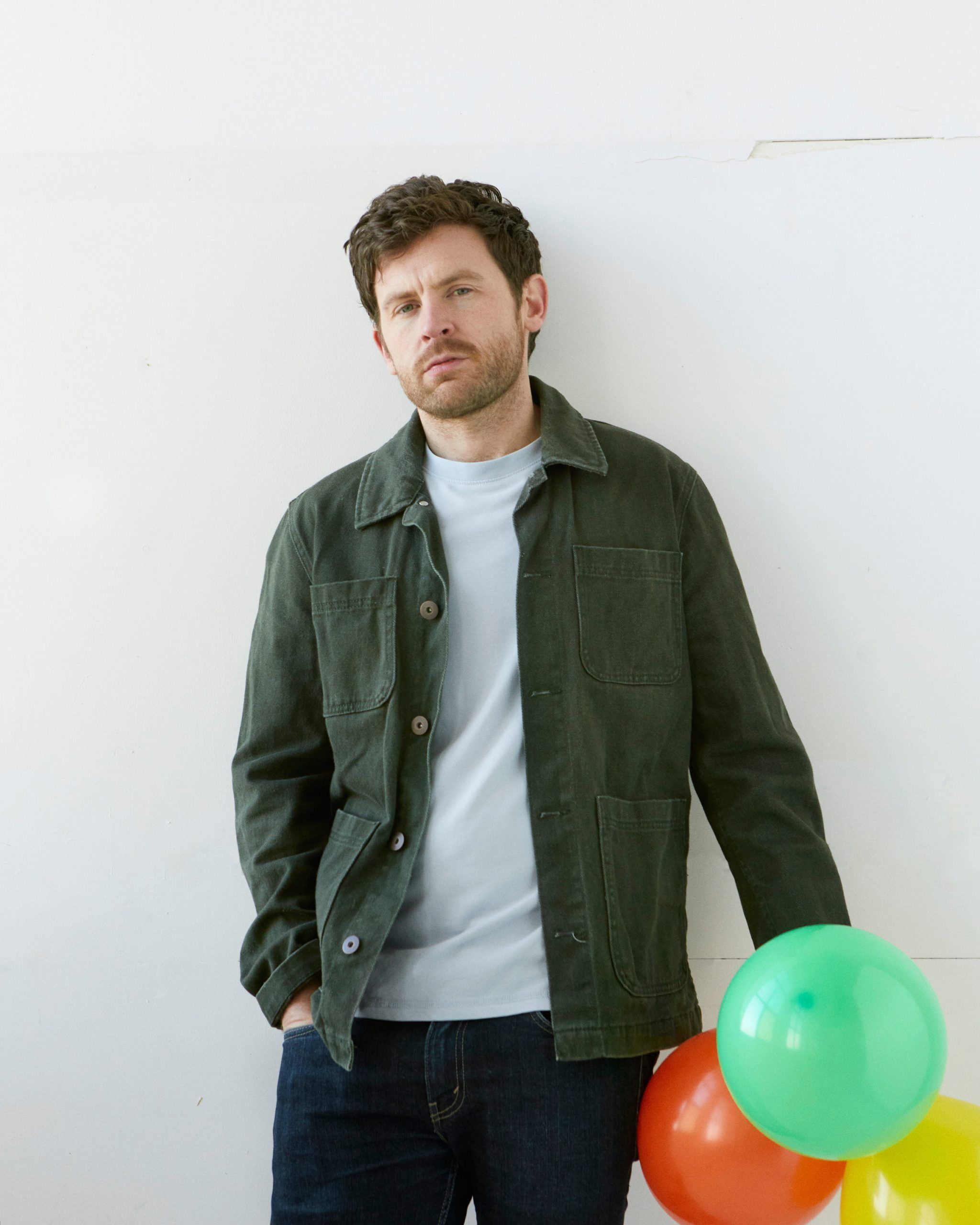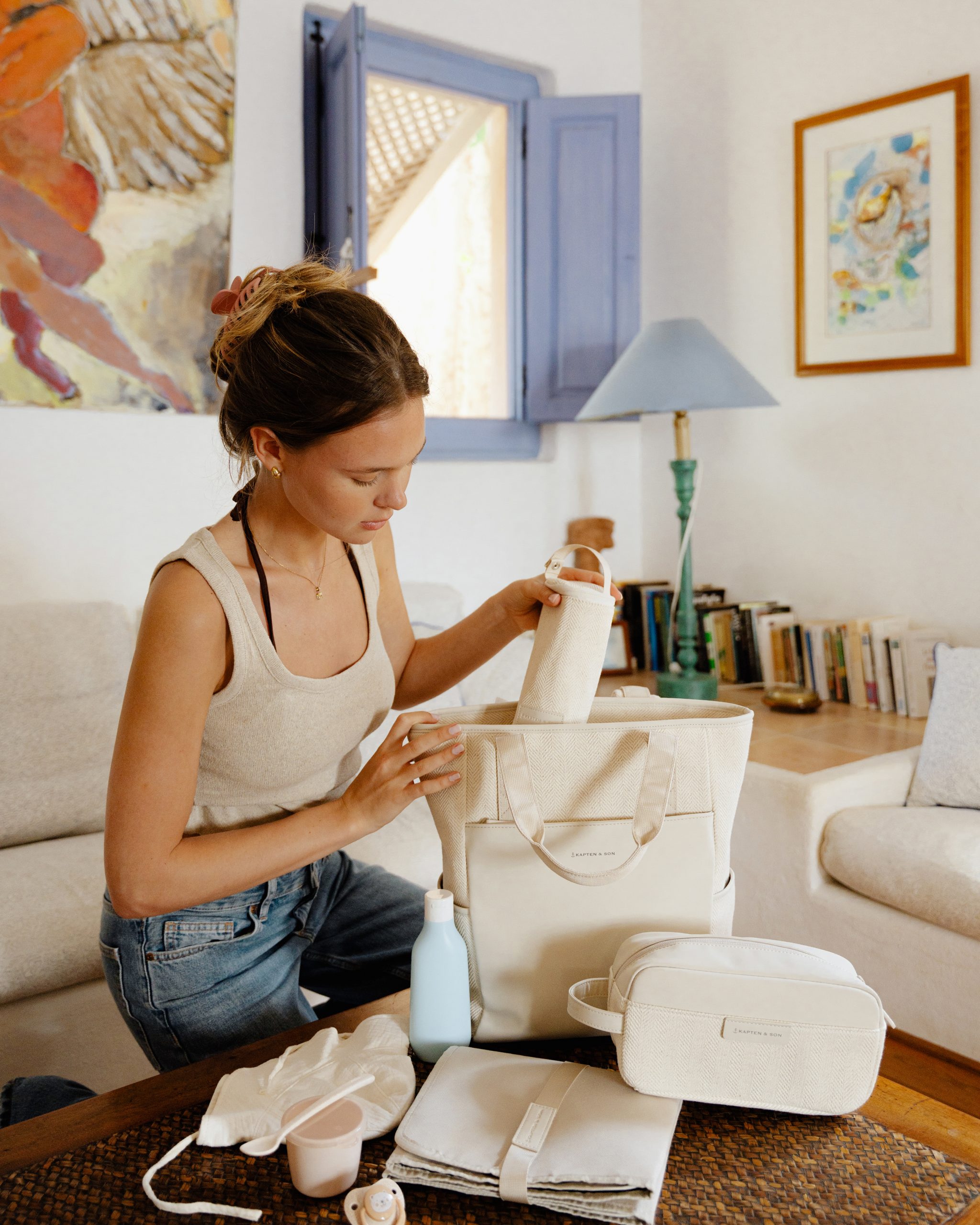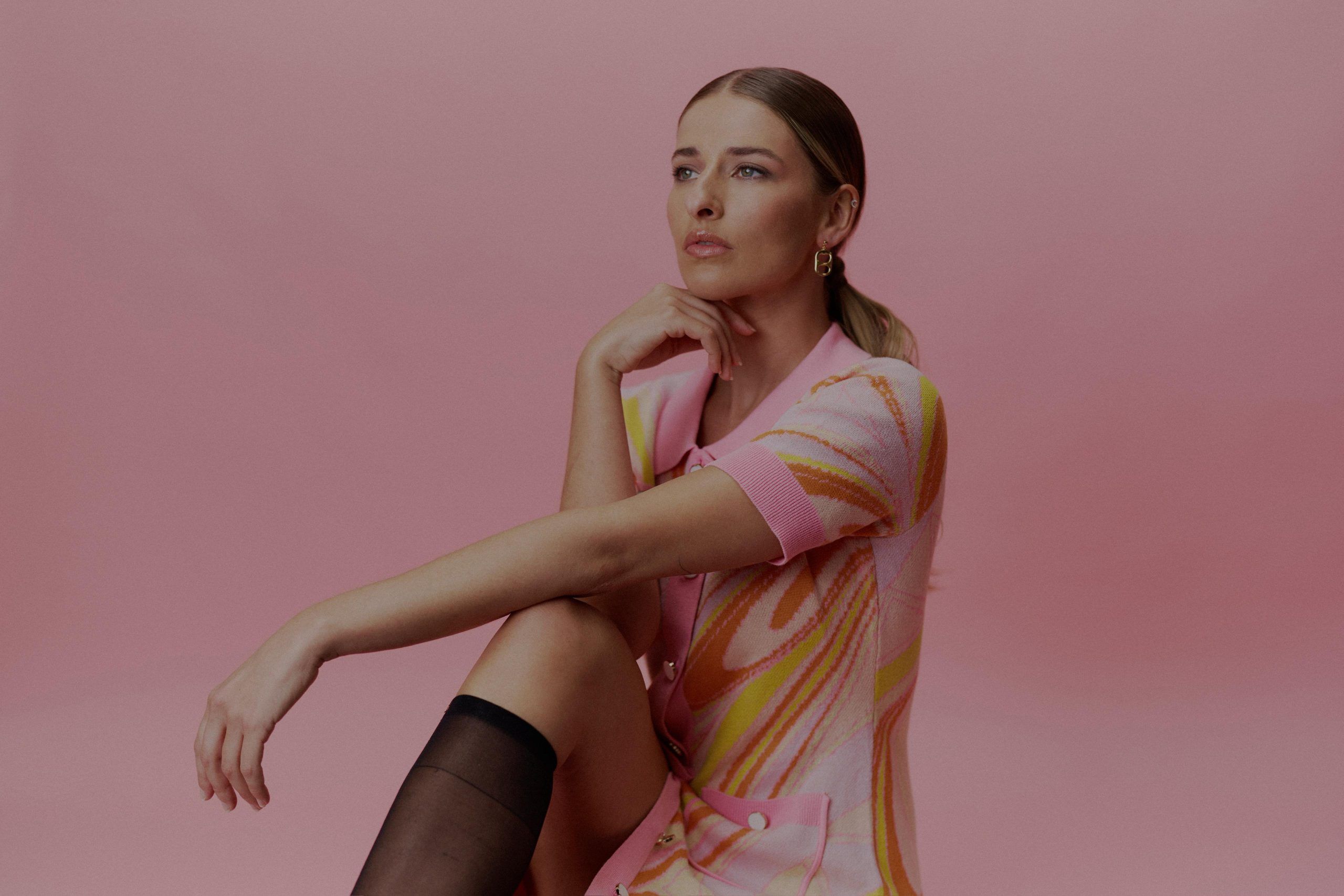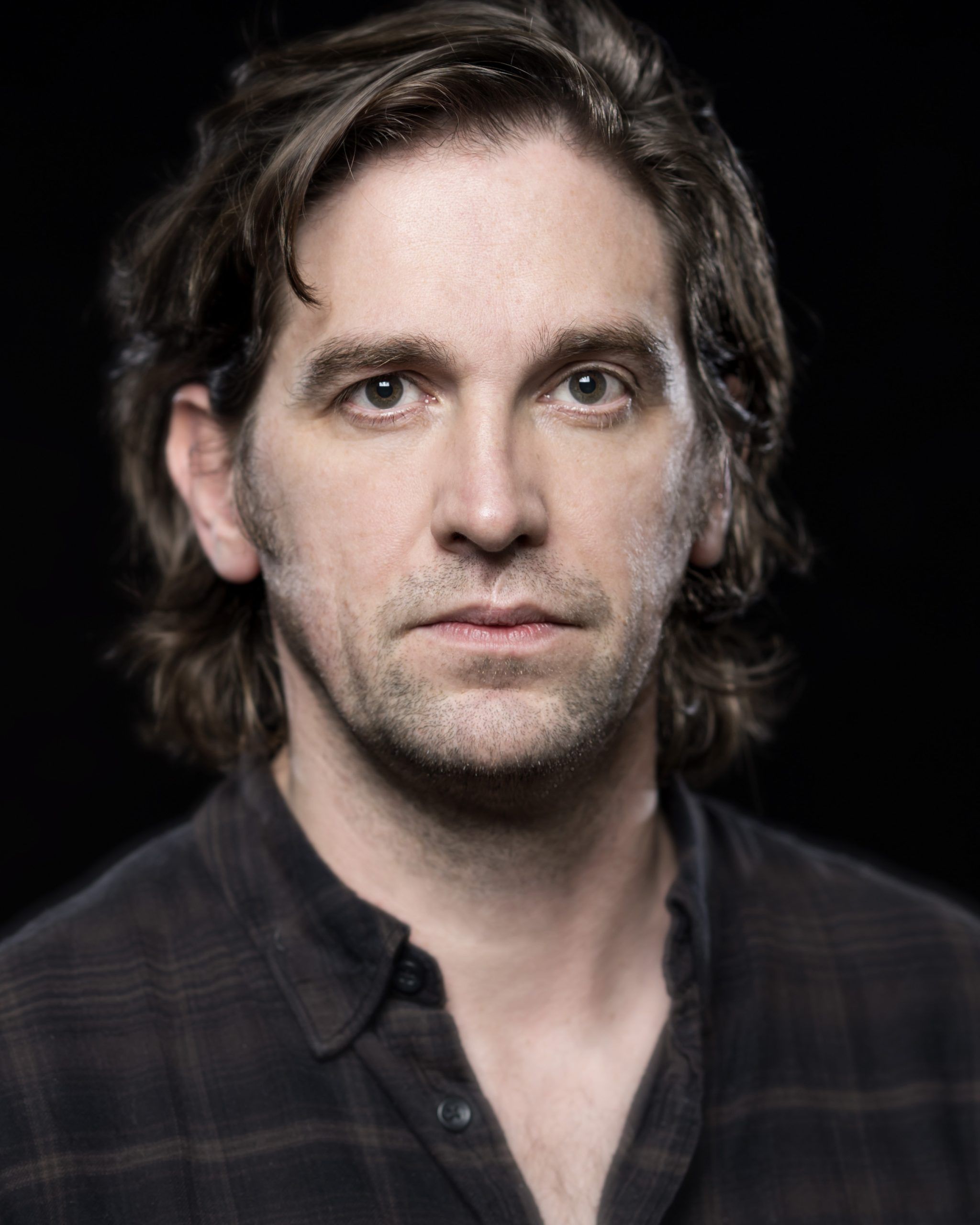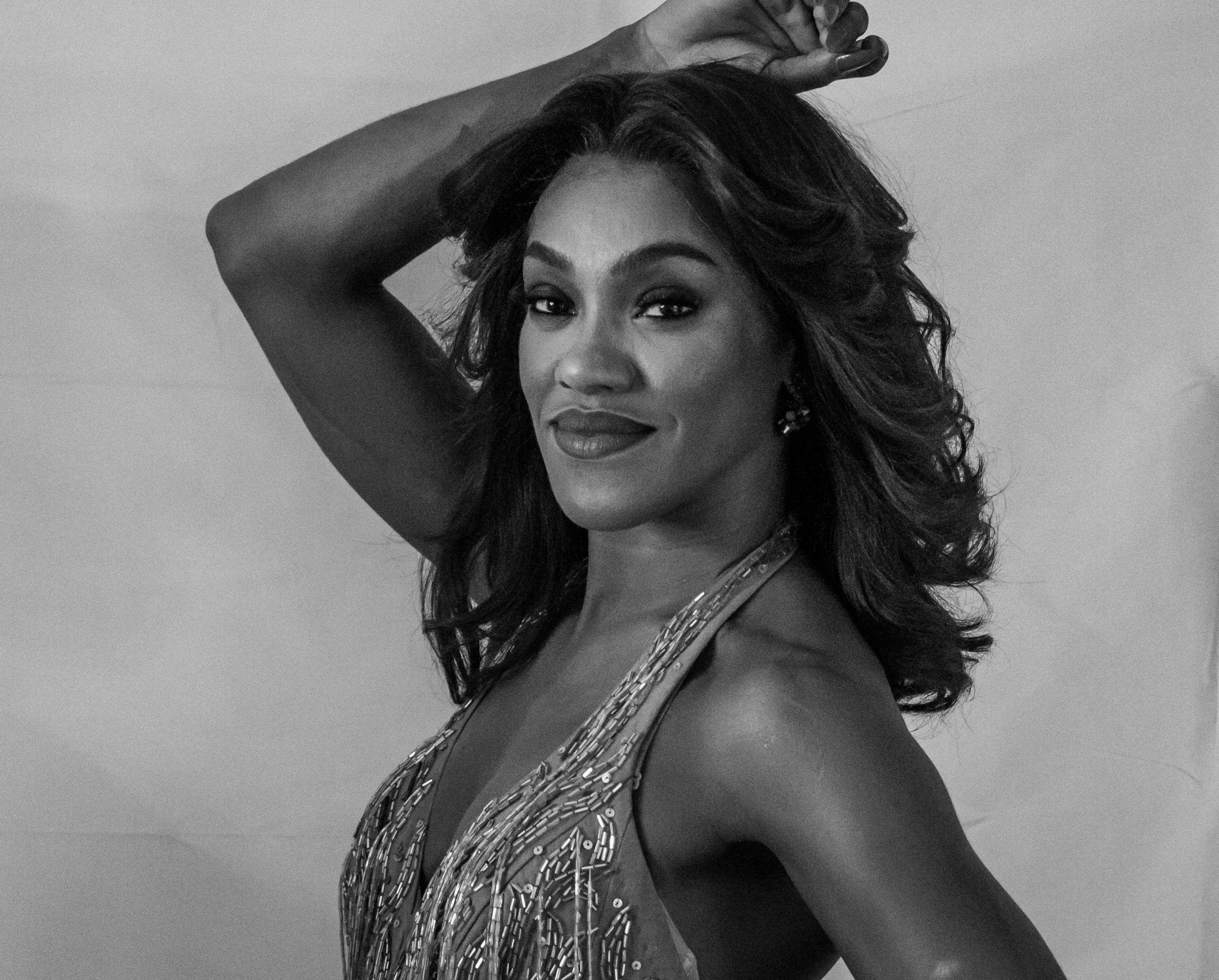George Lewis has been known on the UK comedy circuit for more than a decade – but you probably know him as that funny dad on Instagram who does the chatting toddler sketches. His videos capture the chaos of family life, often with unnerving accuracy. Between a sold-out nationwide tour and his parenting book for dads – Don’t Panic, Lewis has turned the daily frustrations of parenthood into something universally relatable – and very funny.
I sat down with George to talk about comedy, family, neurodiversity, and finding humour in the madness of family life.
You’re known as the funny dad on Instagram. How do you feel about that label?
I like it. It’s not what I ever planned, but it makes sense. That’s how people consume comedy now – it’s personal, it’s about the person making it.
I’d been doing stand-up for more than a decade before posting. Back then, people told you not to talk about kids – it made you seem less relevant. The industry wanted things that felt young and cool, so I thought maybe I’d hit my level and that was that.
Then I started doing sketches. I’d always wanted to write and act, and sketching let me do both. I didn’t expect the parenting ones to land so hard, but they did. They felt true to me, and other parents clearly felt the same.
You think you’re the only one finding it hard or getting frustrated, but it’s universal. Sharing that stuff was cathartic – and it turned out to be what people related to most.
How much of your material comes straight from life at home?
Almost all of it. It’s just day-to-day dad life – the school run, trying to put up a shelf, getting it wrong.
When I started making videos, I thought I’d run out of ideas after a few weeks. But you don’t – life keeps handing them to you. Especially with kids.
I’ve kind of hacked it now. On the worst days I’m still thinking, at least I’ll get a sketch out of this. It helps me deal with things better too – I can step back and see the funny side. My son had a full meltdown in the car today, and a few years ago that would’ve completely stressed me out. Now I can just see it for what it is.
Even before the videos, I realised how much parenting is about worrying what other people think. When your kid’s screaming in public, you assume everyone’s judging you. But when I see another parent going through it, I’m not judging at all – I’m just thinking, thank God it’s you today and not me. Once you see that, everything feels less like failure and more like, well, life.
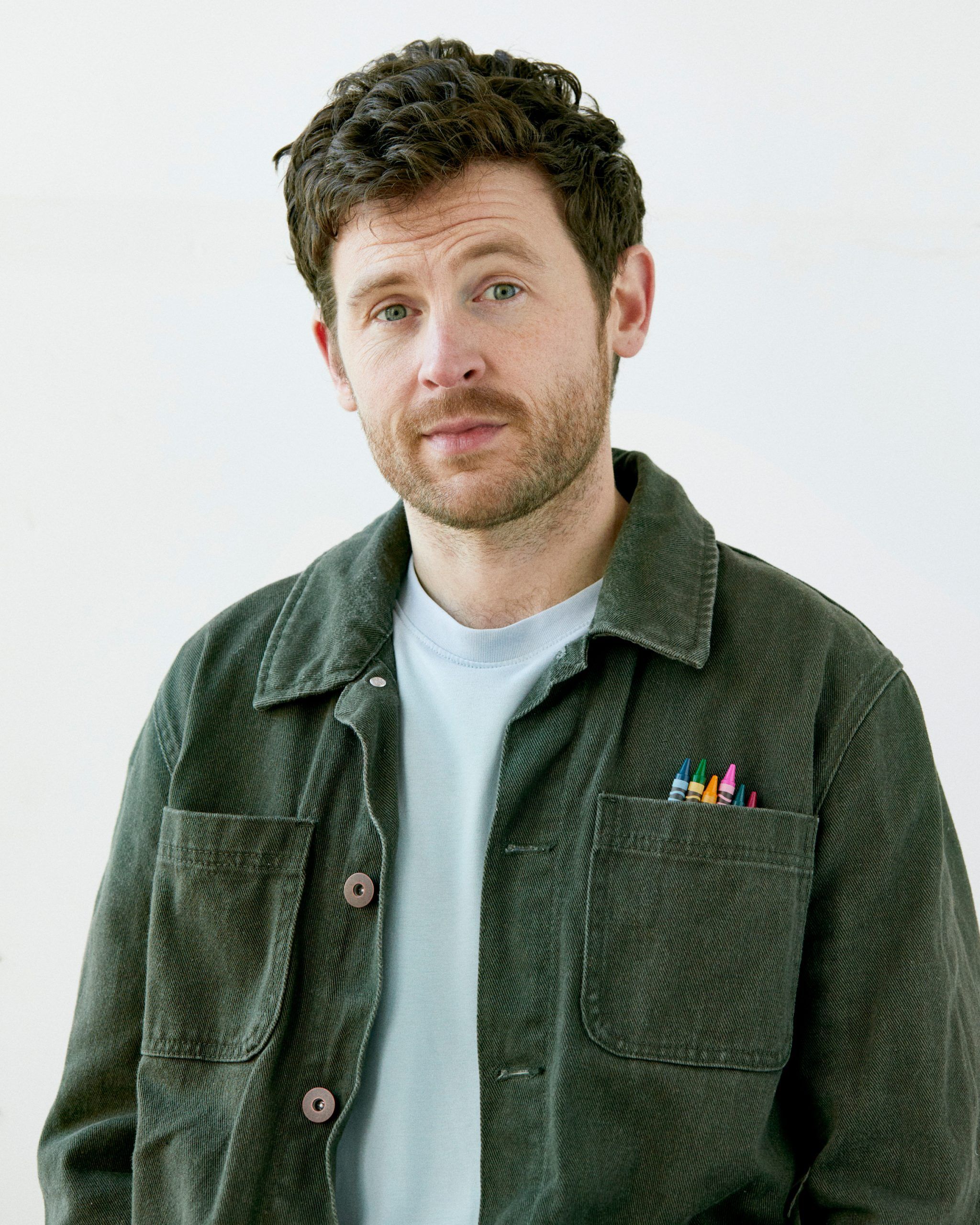
Does your eldest understand what you do – that you take the funny moments at home and turn them into comedy?
Kind of. It’s all they’ve ever known, really, so I don’t think they find it strange that I’m in the corner filming myself pretending to be a toddler. They know my job is to go out and make people laugh, but I think they assume I just tell one story about each of them and that’s it.
It’s funny, isn’t it? Every kid thinks their dad’s the funniest person alive – that’s why dads tell such terrible jokes. You do a ridiculous joke, your kid laughs, and suddenly you’re convinced you’re a comedy genius. But you actually are one.
You’re spot on, though. It gives dads a completely misplaced confidence – a silly joke gets a huge reaction at home.
Do you ever catch yourself in the middle of the chaos, thinking, this is going to be gold later? Do you walk off and write it down?
Yeah, I’ll often jot something in my phone straight away. My wife always spots it – she’ll say, “You’ve written that down, haven’t you?” And she’s usually right.
It’s constant, really. That’s just how comedians think. You’re always noticing things and making notes. The difference now is that I can turn an observation around quickly because I know my online audience and what resonates with them.
A lot of parenting material is shared experience. Pretty much anything that happens to me will connect with someone else. I used to worry about that, because our kids are quite different, and I’d think, what if no one else relates? But most of my sketches aren’t really about what my kids do – they’re about how you feel as a parent. That’s the bit everyone recognises.
I saw your nursery food sketch yesterday – it’s so accurate. Our kids come home and we’re told, “Oh, they’ve had lentils and carrot soup,” and we’re like, hang on, we’ve tried to give them that. They won’t even touch it.
Exactly! We had the same thing today – apparently my son had two helpings of lamb tagine. He only eats yellow food at home. The same things every day.
It’s absurd.
Totally. I’ve got a bit in the stand-up show about that, actually – the sheer bullshit they tell you at nursery. Once the tour’s done, I’m turning it into another sketch.
Do you remember the first video that really took off – the one where you thought, people are actually watching this?
Yeah. When I started, I was self-conscious. I’d been a comedian for years but only had about two thousand followers, mostly other comics. I remember thinking, if these are rubbish, I’ll be mortified.
Those early videos didn’t get huge numbers, but a few people kept me going. Josh Widdicombe, who I’d supported on tour, always liked and shared them, which meant a lot. When you’re starting something new, you’re fragile – one bad post and you might stop.
The first one that really blew up was about air fryers, then I did one about parents calling 111, which got even more attention. That’s when I realised the parenting stuff hit differently – it got shared in WhatsApp groups, mums sending it to friends saying, this is us.
Then came the playground equipment sketch, which went mad – I even heard it on the radio. But the big turning point was Two Toddlers Chatting. I posted one, went to do a gig, came off stage, and Pink had followed and shared it. Suddenly, American celebrities were liking it.
It was surreal, but amazing to realise I was finally doing what felt true to me – and people were connecting with it.
Was that the moment you thought, this is huge?
Yeah, that was the one. It was the first time people started recognising me – you’re the one who does the toddler sketches. That’s when it hit me. Those videos are still what people mention most.
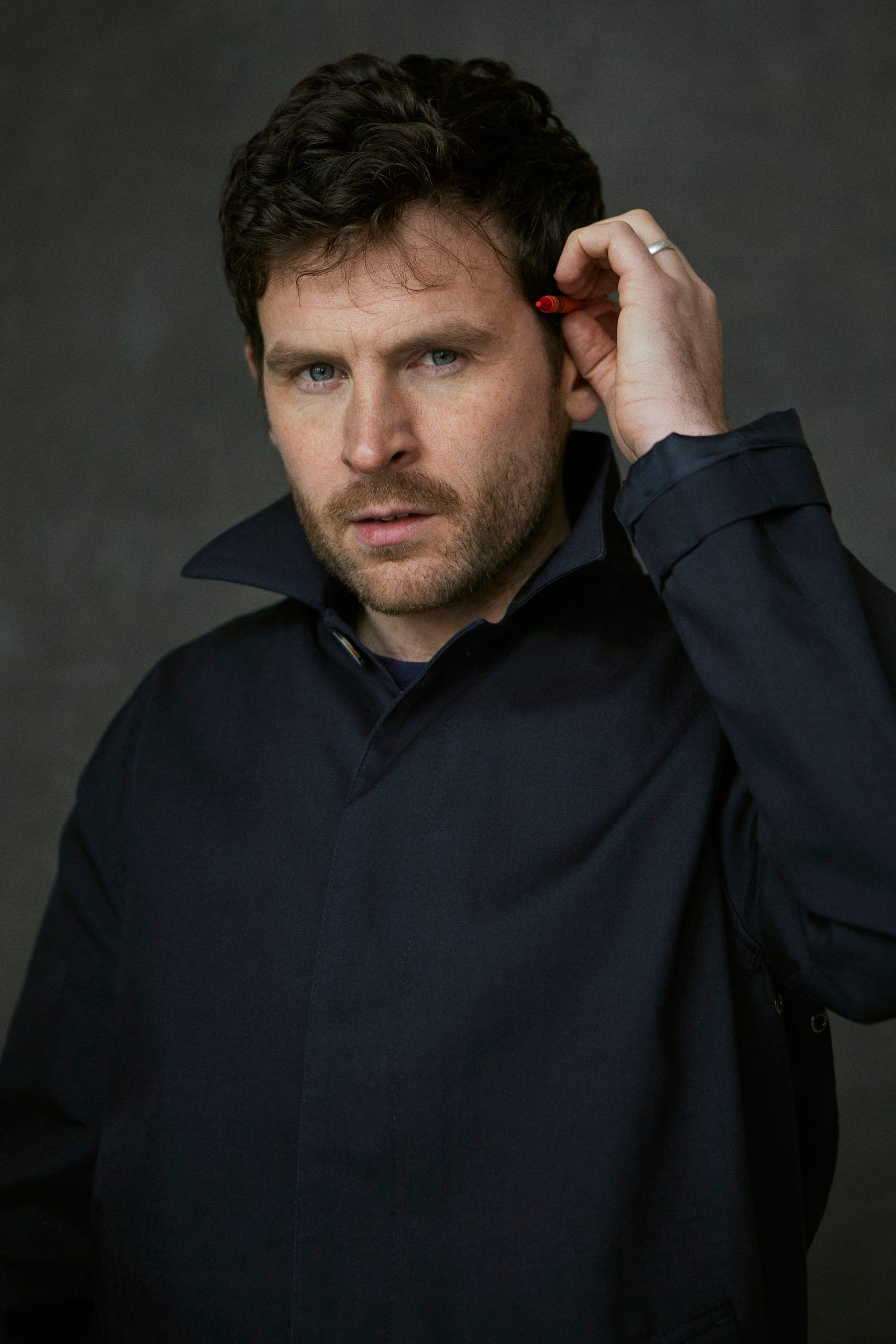
Your videos now reach hundreds of thousands, sometimes millions, but like anyone making content, some land bigger than others. Do you ever get downhearted if a few in a row don’t really take off?
Yeah, definitely. You can grow quickly and then plateau just as fast. There was a point recently where I thought, I need a big one again. You get in your own head about it.
But the ones with fewer views often get the strongest reactions. People will say, I loved that one, do more like it. The broader stuff gets bigger numbers, but the niche ones stick with people more.
My only rule is to make things I genuinely find funny. It’s easy to start chasing numbers, but that’s when it becomes bland. You might get millions of views, but no one’s thinking, that’s a classic sketch. So I mix it up – some broader, some specific – but always things that make me laugh.
What’s been the most surprising or unexpected response you’ve had to a sketch?
Probably the Bluey one. I love Bluey as a parent – it’s brilliant. After I posted that sketch, the actress who voices Chilli started following me and we had a bit of a back-and-forth. You make something in your living room, and suddenly you’re talking to someone from the actual show.
Then there was Sarah Jessica Parker – I thought her follow was fake, but it wasn’t. We even exchanged a few messages. My wife thought that was insane.
Even A-listers are parents – they get it.
Exactly. I used to think talking about parenting might narrow things, but it’s universal. Everyone’s been through it, or knows someone who has. It’s a great leveller.
Do you treat your short videos differently from your stand-up material, or is it all the same muscle?
They’re quite different. Starting as a stand-up helped, because I already knew what works live. I know people who built big online followings and then struggled to take that material on stage.
For me, it’s always clear where something belongs. Videos are more subtle and observational, while stand-up needs structure and big laugh points. On stage, you need those hits; online, you can be more personal and nuanced.
When I jot an idea down, I’ll tag it in my phone as “sketch”, “stand-up”, or, if it’s not funny at all, “book”.
Your tour actually started on the 7th of September 2024 – more than a year ago now. That’s a long run. How has it felt to keep it going that whole time?
It’s been mad. When my agent first suggested a tour, I said, “No, I don’t want to do a tour.” He pushed back, so I said fine, maybe ten or fifteen dates. He said, “Yeah, yeah, cool,” and then of course it just grew.
The shows started selling really well, and obviously your ego gets involved – you think, all right, this is good. Then he says, “We could do bigger venues,” and you go, “Okay then.” But the gigs have been so lovely that it’s hard to say no.
I’m about a hundred shows in now, with around fifteen left. I was in Stamford last night, and it feels like the home stretch. I’m enjoying them more than ever. Even now, I still tweak things – not out of boredom, just to get them exactly right. After this many shows, you know which bits still don’t feel perfect. By the end of a tour, the show’s always at its best – and that’s when you stop doing it.
There were moments, especially midway through the last forty-date run, where I thought, I’ve got so many left, but now it’s just big venues and great crowds. Once this finishes, though, I’m not driving anywhere for at least a year.
Just sketches and time with the kids.
Exactly – lots of sketches, and being at home again for a bit.
I’m coming to see you on 17 October in London – sounds like perfect timing, right at that point in the tour when everything’s in its best shape.
Oh, it’s going to be so nice. Hackney Empire especially – I’ve supported other comedians there before, but it never crossed my mind that I’d headline it myself one day. I couldn’t even imagine how that would happen.
It’s surreal, but really lovely. That’ll actually be my fifth London date – I’ve done them in little clusters across the tour – and this one will be the last. I’m really just trying to take it all in now and enjoy it while it’s happening, because I know what I’m like. When it’s over, I’ll look back and think, that was mad, and barely remember the blur of it all.
The show’s called The Best Thing You’ll Ever Do. I’m guessing that’s about parenting – what’s the story behind the title?
Yeah, it’s something people always said to me before I had kids – it’s the best thing you’ll ever do, you’ve got to do it. And then as soon as you tell them you’re having a baby, they change completely. They’re like, ha, got you.
I do think it’s the best thing you’ll ever do – just not in the way people imagine. When you hear that phrase, you picture this magical, movie version of parenthood, but it’s so much more complicated than that. It is the best thing – but it’s messy, chaotic, exhausting, and not at all what you pictured.
With so many extra dates added, how has the show evolved as you’ve taken it around the country?
You learn so much doing it night after night. Partly what audiences respond to, but also which bits you actually enjoy saying. The ones you don’t, you drop.
Because you’re doing so many gigs, things crop up that weren’t planned – if they work, they stay. I don’t think I’ve changed it that much, but people who’ve seen it more than once always say it’s changed a lot. You just naturally add things, lose others, tighten punchlines.
It’s like any story – you tell it ten times and it’s funnier the tenth. Do it a hundred times and it’s at its best. By this stage it’s definitely the funniest it’s ever been, and I’m enjoying it more than ever because I’ve trimmed everything I don’t love doing. You’ve got to, really, if you’re doing this many shows.
You’re wrapping up at The Lowry in Salford, near where you’re from in Stockport. Was finishing close to home deliberate?
Yeah, that’s exactly what I wanted. When I first planned the tour – back when it was meant to be much shorter – The Lowry was going to be the final show. I’ve actually played there twice already, but in the smaller room. This time it’s in the biggest space, so it’ll be the largest solo show I’ve ever done. Ending it there just feels right.
That’s going to be special.
Yeah, with the home crowd. My eldest child might come along too – my wife’s saying they can watch from the side. We’ll see.
‘Daddy, you said a swear!’
Yeah, and they don’t forget things, my kids!
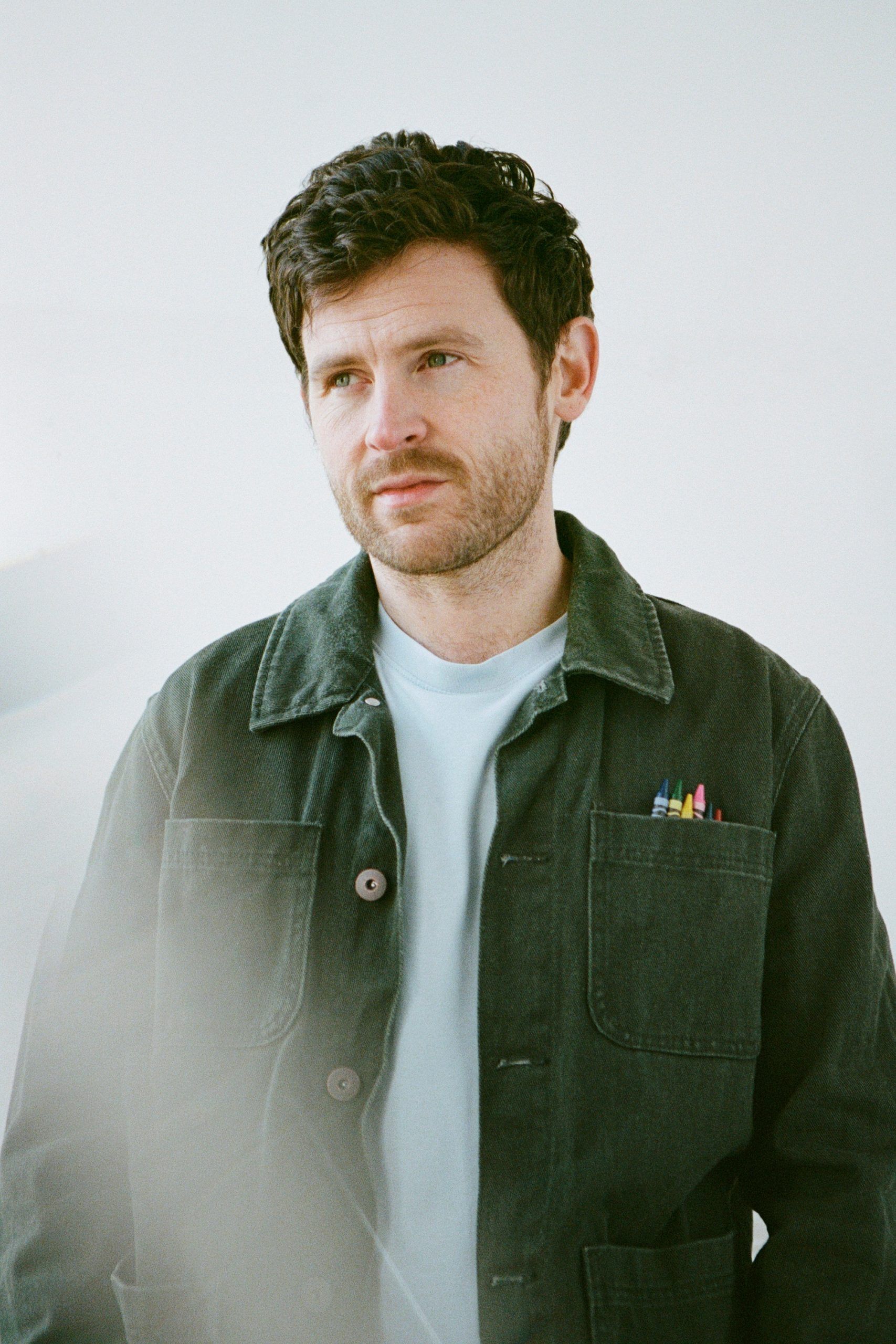
You’ve written a book – DON’T PANIC! All the Stuff the Expectant Dad Needs to Know. I wish I’d had a book like that when I first became a parent. Was that why you wanted to write it – to create the book you felt was missing?
Yeah, exactly that. When we were expecting our first, I bought a few books and they were all so practical – here’s how to pack a hospital bag, here’s how to change a nappy. All useful, but then the baby arrived and I thought, what the fuck is this? None of them had prepared me for what it actually feels like to be a dad – the worry, the boring bits, the funny bits.
The only people who’d been honest about that were my mates who’d already been through it. So I wanted to write something that felt like that – the stuff your mate would tell you. There are bits in there from other comedian friends too, all giving advice like mates would, but funny because, well, they’re comedians.
Before our first was born, I thought I’d done loads of prep, but when he arrived, I realised I had no idea what I was doing. None of it was what I’d expected. And when I was researching, I found loads of brilliant, honest books written for women – but very little that talked to dads in the same way. It still feels like a really old-fashioned attitude to how fathers are treated.
How did writing a book compare to writing stand-up or sketches?
I thought I’d hate it. Well, not hate it, but I imagined I’d love writing at first and then be desperate never to do it again. But actually, I really enjoyed it. I just love writing. And in this job, having variety is the best thing – coming up with ideas and having different places for them to live. The book gave me space for the longer, more honest stuff.
At the time, I was also writing a weekly football column for The Times, which trained me to be concise and funny even about something dry. So with the book, I could take bits of advice and package them in a way that felt real but still made people laugh.
I am working on another book now – this one about parenting neurodivergent children. I’ve started it, but I’ll admit it feels more daunting. It’s a more personal, sensitive subject, so I want to get it right.
You mention your next book will focus on parenting neurodivergent children – what are your thoughts on how conditions like ADHD are still perceived?
It’s strange, isn’t it? There’s this odd stigma around ADHD in particular. People still treat it as something you can joke about – like it’s not serious or it’s just an excuse. But that attitude is really damaging.
I look at my son, and other kids we know, and you can see how much it can affect their education and confidence. It can completely change the path of someone’s life if it isn’t understood or supported properly. Yet it’s still dismissed, as if it’s one of the “fine ones” to make fun of, instead of being treated with the seriousness and empathy it deserves.
You and your wife are ambassadors for the charity Autistica. With two of your children being autistic, what does that role mean to you as a family?
For a long time I didn’t talk about it, mostly because we were stuck in that endless waiting stage. It took years to get a diagnosis, and in that time you’re constantly second-guessing yourself. Some people say, he seems fine, others don’t, and you end up fighting for something you never asked to fight for.
Once I started talking about how confusing it all was, I realised how many parents felt the same. The messages poured in – people saying, we thought it was just us. That’s when I understood how important it is to keep speaking about it. Working with Autistica gives it focus. They do proper research and push for change on waiting lists and diagnosis inequality.
It starts with wanting support for your own family, but it grows into wanting the system to be better for everyone. And because people now see what I do, I feel a responsibility to talk about it.
Getting a diagnosis really changes how people respond too, right?
Yeah, it makes a huge difference. You can say, by the way, he’s autistic and ADHD, and suddenly people get it. But they shouldn’t need that to be kind.
One hundred percent agree.
And what do you think when you hear comments like President Trump’s about what causes autism?
It’s dangerous. You’d hope no one would take it seriously, but people do. I posted about it and immediately lost hundreds of followers – some even defended him. That’s what scares me: misinformation spreads so easily. It blames mums, fuels stigma, and frames autism as something to cure. It’s not. Some people are just wired differently – often brilliantly – but the world isn’t built for that.
Catch George on the last leg of his tour, with 11 more dates running through Oct/Nov 2025!
Full details at georgelewiscomedian.com
Click here to buy his book: DON’T PANIC! All the Stuff the Expectant Dad Needs to Know
And for all the laughs and latest news, follow George on Instagram or TikTok.
Words by Nick Barr
Photography by Lucy Ridges

